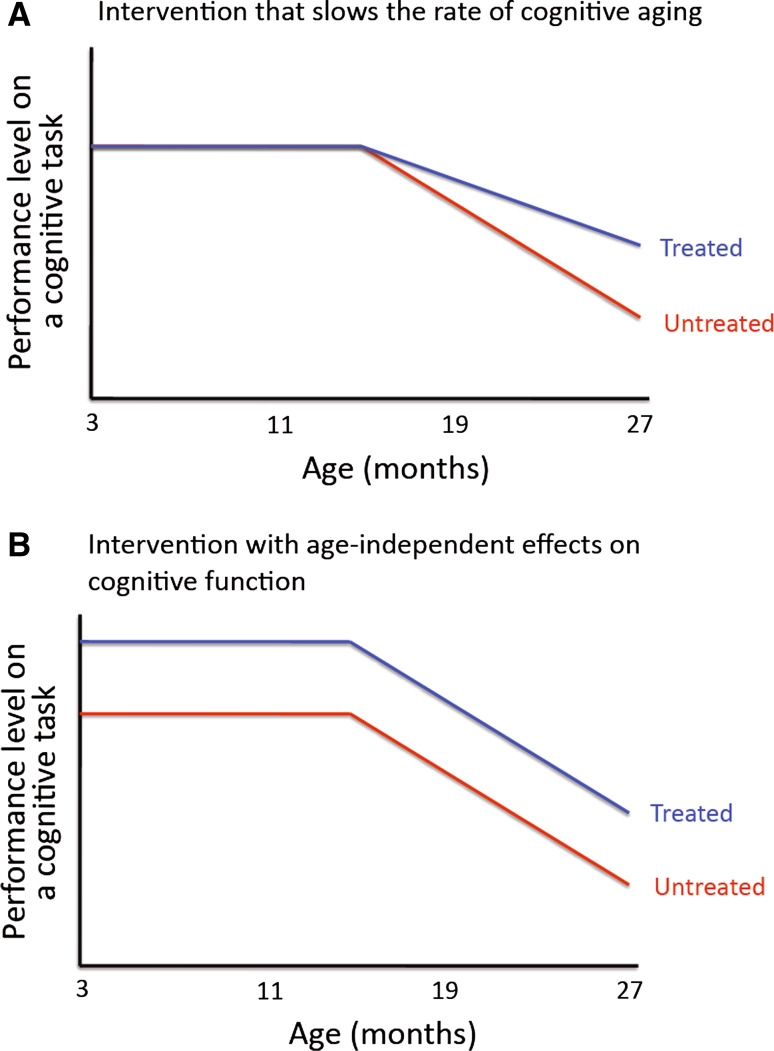Fig. 2.
Causal versus symptomatic effects on aging traits. A putative anti-aging intervention could in principle exert its effects on a given aging trait causally, by slowing the rate of aging (a), or symptomatically via aging-independent effects (b). a and b show examples of age-related decline of performance on a cognitive task that progressively starts in the second year of life of the animal. A treatment (given throughout life) that slows the rate of cognitive aging would be expected to specifically affect performance on the task once age-related decline has started (a). A treatment (given throughout life) that symptomatically improves age-related cognitive decline would be expected to improve performance at all ages (b)

